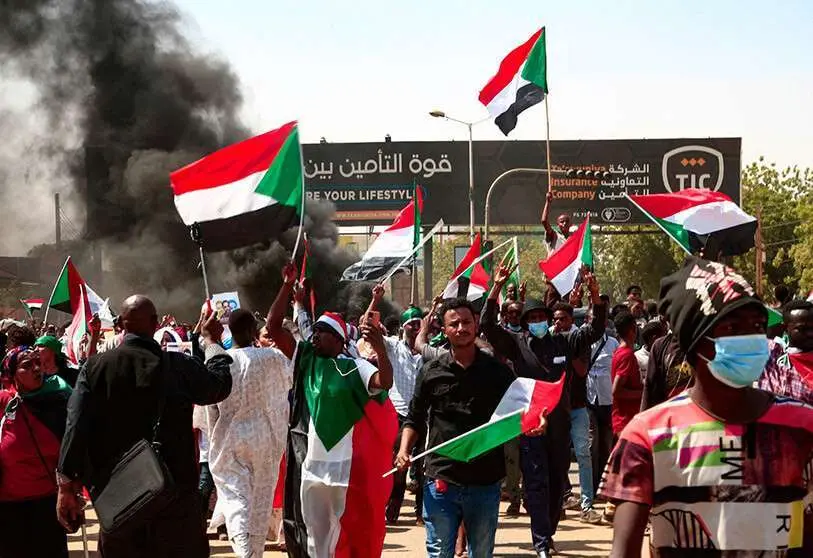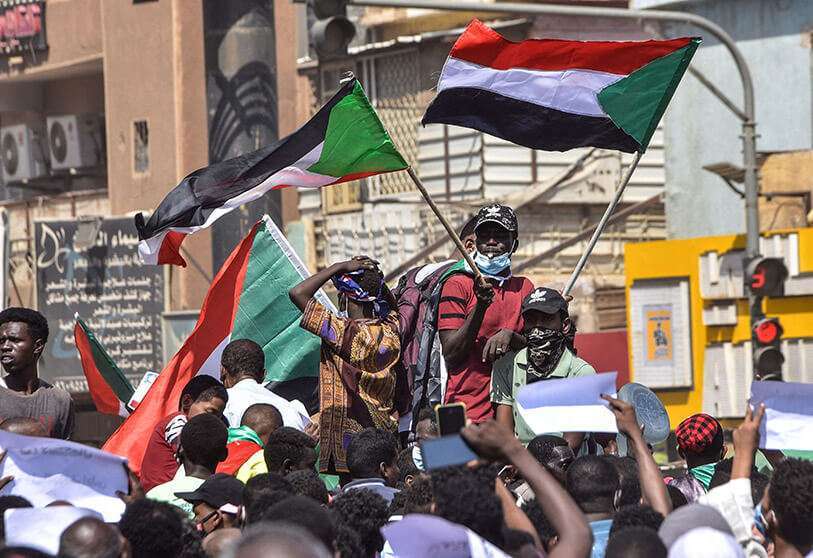At least seven killed in violent protests in Sudan

Around a thousand people have taken to the streets of Khartoum over the last two days in a protest organised by the so-called "resistance committees", who are calling for the military to be removed from power and for the return of a civilian government. Sudanese blocked streets with tyres and stones on Tuesday, leaving one of the bloodiest days since the coup d'état on 25 October. The violent demonstrations have claimed seven victims, according to the independent Doctors' Committee. The death toll now stands at 71 dead and 2,200 injured since the military seized power. Government forces also used tear gas, sound bombs and rubber bullets.
In the wake of these events, Sudan's Forces for Freedom and Change alliance, which was displaced after the coup, called on Tuesday for "the masses to participate in a two-day comprehensive civil disobedience", as Faisal Mohamed Salih, former minister of information in the transitional government, posted on his Twitter account. "The aim is to gather the revolutionary forces, unify them and prepare them to fight a decisive battle to overthrow the coup authority," he said in a statement. The former minister also urged nations to intervene on behalf of the civilian government, saying that "what is happening in Sudan is a full-fledged crime. The world must act".
Sudan's turmoil has been on the rise since the resignation earlier this month of Prime Minister Abdallah Hamdok, who was appointed to head the country's transitional government. The presence of the military in the government has become more noticeable. So much so that the Sudanese Sovereign Council has proposed new measures to suppress these demonstrations, announcing the establishment of an anti-terrorist force. The aim of this new proposal, as announced, is to counter "potential threats".

Following these violent days, the UN special representative, Volker Perthes, has condemned the repression of the protests and the use of live ammunition. In addition, Ravina Shamdasani, spokesperson for the UN High Commissioner for Human Rights, has denounced that "almost daily" there are demonstrators killed or injured at the hands of the Sudanese security forces. "Our joint human rights office in Sudan has found that more than 25% of those injured were indirectly hit by tear gas canisters, in violation of international standards," she said. It has therefore demanded that the authorities "immediately put an end to the unnecessary and disproportionate use of force, including the use of live fire against peaceful demonstrators".
Moreover, these protests come as the US was scheduled to send US diplomats for talks. US Under Secretary of State Molly Phee and Special Envoy for the Horn of Africa David Satterfield were expected to arrive in Khartoum, where they would "reiterate the call on the Security Forces to end violence and respect freedom of expression and peaceful assembly". The US embassy has similarly criticised the "violent tactics of the Sudanese security forces".

EU foreign affairs chief Josep Borrell announced that repeated appeals to the Sudanese authorities to refrain from violence against demonstrators "have fallen on deaf ears". Borrell also said that repression, including violence against civilians and the arrest of activists and journalists, has put Sudan on "a dangerous path away from peace and stability". He also urged Sudanese forces to de-escalate tensions because "avoiding further loss of life is essential".
In the face of these violent protests, the "Friends of Sudan", made up of the United States, the European Union, Saudi Arabia, the United Arab Emirates and the UN in favour of Sudan's democratic transition, met on Tuesday in Riyadh to discuss the Sudanese situation. The organisation expressed deep concern about the violence and argued that "active international support is needed to stop the violence".








